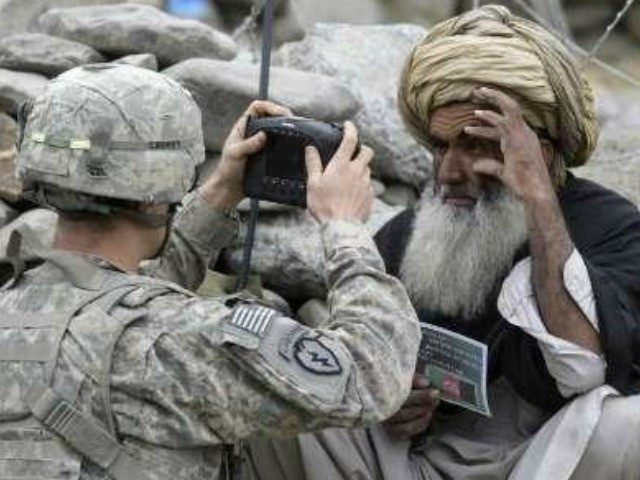Many Afghans believe they will be worse off now that the U.S.-led coalition has ended its combat mission and the majority of its troops have been withdrawn.
A Gallup poll released on Wednesday shows that nearly four in 10 Afghans expect life to be worse with the U.S. and NATO withdrawing the majority of their troops in 2014.
Only about 20 percent believe they will be better off, while an estimated 30 percent expect the situation to remain the same.
“Although the U.S. will leave behind more than 10,000 troops for support and counter-terrorism efforts, many Afghans likely agree with [Afghan] President Ashraf Ghani’s call last week for the U.S. to ‘re-examine’ its timetable for removing these forces by the end of 2016,” explained Gallup. “Afghans, like Ghani, see that more work remains to be done in their country and that the conflict at home will not end, although the war officially has.”
President Obama ended the U.S.-led combat mission in Afghanistan last month, at the end of the deadliest year of the war, which started more than 13 years ago on Oct. 7, 2001.
The Gallup poll results, based on face-to-face interviews conducted last year, reflect the Afghan sentiment described in a recent article published by the Afghanistan Times (AT).
In Afghanistan, the security situation “is worsening day to day. Every Afghan province is in a grip of violence…Security has not returned to the homes of Afghans. Every Afghan family is living with fear of terrorism,” reported the AT.
“Despite the grim security situation,” President Obama has announced an end to the U.S.-led military combat mission and termed it “successful,” noted the article.
“His statement was aimed to throw dust into the eyes of Americans,” it continued. “The ground situation is totally different from what American authorities project…the fight between [the Afghan National Security Force] and insurgents is intensifying with each passing day.”
Fueled by a surge of Taliban attacks, the year 2014 ended up being one of the deadliest of the Afghanistan war for civilians and the Afghan National Security Force (ANSF), which includes the national police and army.
Gallup found that nearly half of Afghans (46 percent) believe the Taliban presence will increase after the majority of U.S.-led international forces depart in 2014. Only 23 percent believe the Taliban presence will decrease.
“Instead of rooting out the militant groups and putting weight behind the [ANSF], the U.S.-led [International Security Assistance Force] has warned Kabul to remain on [their] toes in the next year, as 2015 would bring no good news for Afghanistan, but only bloodshed at [a] large scale,” reported the Afghanistan Times.
According to Gallup, Afghans are confident in their military, which has gained the support of Afghanistan’s Loya Jirga, a council of elders, and religious scholars.
“Afghans may be skeptical about their future after international troops leave, but they remain highly confident in their own military, which assumed full responsibility for the country’s security on Jan. 1, 2015,” explained Gallup. “The upward trend in Afghans’ confidence in their military ended in 2014, but at 71%, the proportion who currently have faith in their military is still much higher than it was even a few years ago.”
Nevertheless, the Afghanistan Times article mentioned that Afghans believe the Afghan security forces need more resources to fight the Taliban.
“They believe that still ANSF needs modern weapons in [their] fight against [the] insurgency…Afghan security officials have time and again voiced their concerns over [a] lack of modern aircrafts to target militants in all parts of the country, but their calls or request fall on deaf ears in the U.S.,” reported the AT.
The Pentagon announced last month that, after 2014, the American military in Afghanistan will not target Taliban jihadists, including the group’s leader Mullah Omar, unless they pose a direct threat to the United States, a move that has infuriated Afghans.
Afghans are accusing the United States of playing a double game, revealed the Afghanistan Times.
However, in explaining the U.S. stance against the Taliban, Rear Adm. John Kirby, the Pentagon press secretary, said American forces would also target Taliban members that pose a threat to their Afghan partners.
“We’re not going to target Taliban [members] simply by virtue of the fact that they’re Taliban,” said Kirby. “So being a member of the Taliban doesn’t mean that the United States is going to prosecute operations against you for that reason alone.”
“That said, we’ve also been clear that a member of the Taliban who undertakes missions against us or our Afghan partners, by that act alone, renders himself vulnerable and liable to U.S. action,” he added.

COMMENTS
Please let us know if you're having issues with commenting.